Only logged in customers who have purchased this product may leave a review.
Acorn-fed 75% Ibérico shoulder ham (paleta), red label, DOP Dehesa de Extremadura, full-leg
1.724 kr.
race
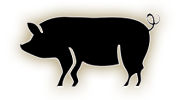

Ibérico 75%
Weight


5 - 5,5 kg
BODY PART


Paleta
(shoulder leg)
PIG DIET


Bellota
(acorn)
FLAVOUR
Smooth
MATURING
15 - 36 months


LABEL OF QUALITY:
Red
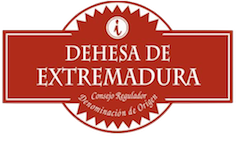

Appellation of Origin (DOP / IGP):
Dehesa de Extremadura


Drinks Pairing Suggestions:
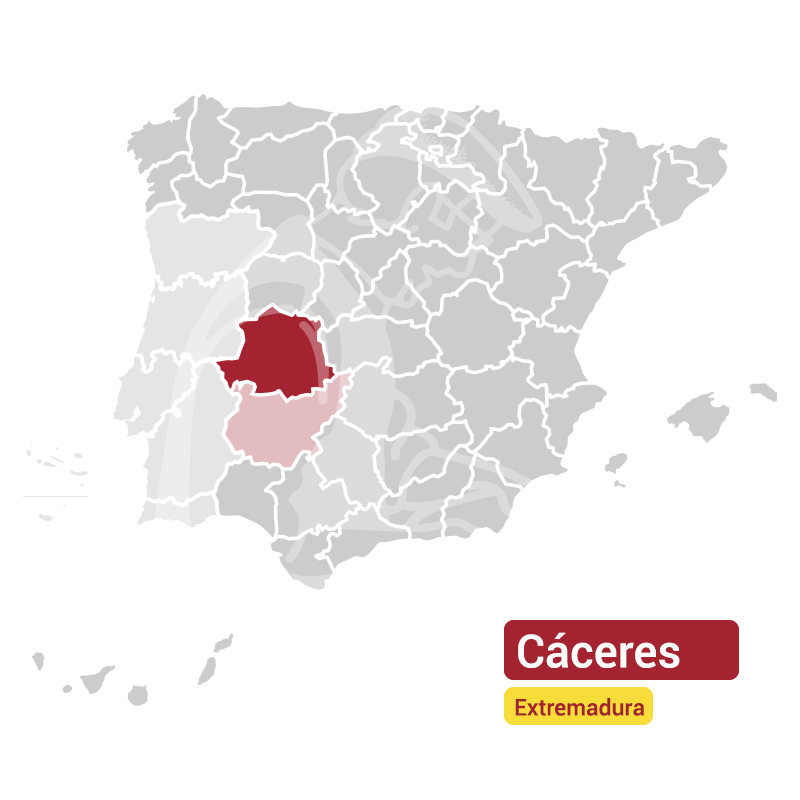

Full-leg piece of approx. 5 - 5,5 kg of Dehesa Barón de Ley acorn-fed 75% Ibérico shoulder ham (paleta), red label, DOP Dehesa de Extremadura, from the town of Baños de Montemayor (Cáceres), Extremadura.
Free delivery.
- Colour: light pink to deep deep red, white fat, or pinkish.
- Texture: homogenous, not very fibrous, and not pasty or softness.
- Smell: intense aroma.
- Flavour: slightly salty taste.
Full-leg piece of approx. 5 - 5,5 kg of Dehesa Barón de Ley acorn-fed 75% Ibérico shoulder ham (paleta), red label, DOP Dehesa de Extremadura, from the town of Baños de Montemayor (Cáceres), Extremadura.
Free delivery.
- Colour: light pink to deep deep red, white fat, or pinkish.
- Texture: homogenous, not very fibrous, and not pasty or softness.
- Smell: intense aroma.
- Flavour: slightly salty taste.
Ibérico acorn-fed pork shoulder ham (paleta), salt, preservatives (E-252, E-250) and antioxidant E-301.
Average nutritional values per 100 ml/g. The % have been calculated based on the reference intake of an average adult (8400 Kj / 2000 Kcal):
We recommend to preserve Spanish ham products in a cool and dry place, away from high temperatures, direct sunlight and heating sources. Room temperature of about 18º - 22ºC is adequate. Avoid storing it near stoves, ovens or heating systems in order to preserve its flavour and aroma. Any cut surface should be covered by the ham’s outer covering of rind and fat (or a clean dish towel) to preserve moisture and prevent drying out and loss of quality.
If you received a full ham leg and plan to store it for some time before consumption, we recommend storing it without wrapping in a cool and dry place, avoiding hot rooms and with excessive humidity, ideally slightly ventilated for making the ham drying process as natural as possible. Some places we recommend are storage rooms, private garages, warehouses and kitchens. Even so, the ham will not deteriorate if it spends a few days in a place that is a little hot, the grease will simply sweat.
Though the maximum consuming time for full hams with bone is one year, normally hams are consumed in around 3 months. Actually, ham will continue its natural drying process so if the ham is started some months after receiving it, the product will only be more dried than at the beginning.
Any cut surface should be covered by the ham’s outer covering of rind and fat to preserve moisture and prevent drying out and loss of quality.
How should ham be consumed?
Ham should be consumed at room temperature, when it will have a lustrous appearance. When too cold, the fat will appear opaque. Any ham that is cut should be consumed immediately, or covered in plastic wrap, to avoid prolonged exposure of the ham to air.
In addition, each time you finish slicing the ham leg, you should protect the cut area with butcher paper, a cloth moistened with olive oil, or with a bit of the trimmed skin and fat layer, so that the cut area remains fresh. To further protect the ham, you may cover it with a clean dish towel.
How to slice a ham leg?
Remove the layer of fat from the top and the sides of the leg until the meat is exposed. Trim the fat as you slice. Cut small, very thin slices, including some of the fat which holds much of the flavor. Slice downwards with your free hand behind the knife.
If you plan to consume the entire ham in a day or two, you can remove the skin and fat completely. If not, it is better only remove the skin and outer fat layer from the area to be sliced that day. To enjoy the flavor and texture of a fine Spanish ham leg, slice the ham with a long sharp knife in the following order: first the rump half, then the rump end and lastly the shank.
The meat nearest the bone is difficult to slice well, and can be cut into small chunks for use in soups and stews. The ham bone itself is also excellent for flavoring broths, soups and stews, and may be cut and frozen for later use.
Producer: El Coto de Rioja, S.A. (Barón de Ley Group)



 Free delivery for ALL jamón (ham) legs
Free delivery for ALL jamón (ham) legs  Daily cutoff same day shipping 12:00 (midday) Mon-Fri
Daily cutoff same day shipping 12:00 (midday) Mon-Fri  Free delivery for ALL jamón / paleta (ham) legs
Free delivery for ALL jamón / paleta (ham) legs



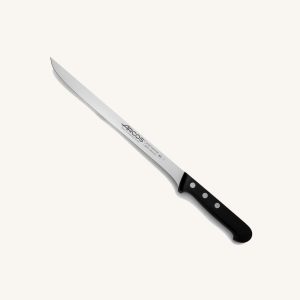
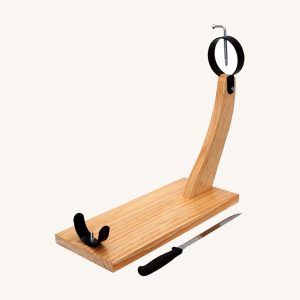
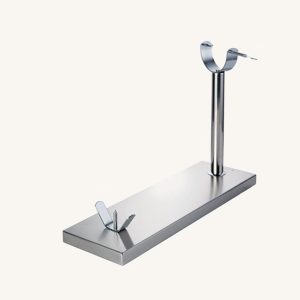


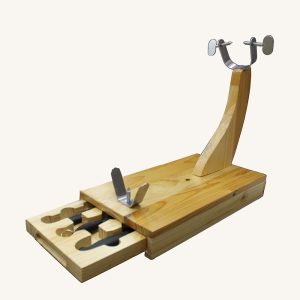

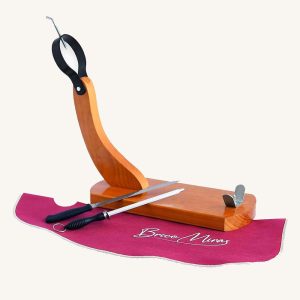

Reviews
There are no reviews yet.